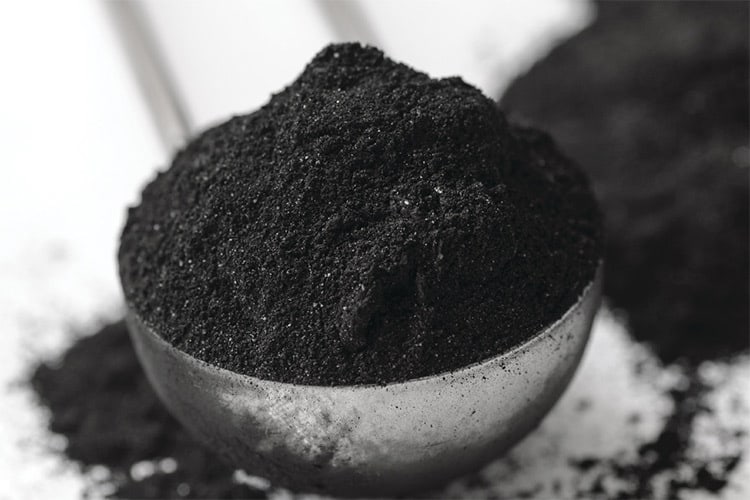
The Great 28 is featured in our annual Cheese Pairings issue.
Consider charcoal the Kabuki makeup of cheese: It’s all about the drama. And while the backstory on these two seemingly disparate ingredients is rooted in food safety and science, it’s the contrasting aesthetic—dark smear of ash against pale, creamy curd—that makes the combination intriguing. Charcoal is the residue left after burning vegetation (or animal matter).
In cheesemaking, it’s always food-grade and usually wood or vegetable ash (there are exceptions: Crown Finish Caves Bone Char Pearl is made with bone ash, for instance). It has two primary uses: protecting cheese from insects and other airborne ickies by providing a natural barrier, and alkalizing acidic cheeses—often young goat cheeses—by facilitating a pH favorable to healthy rind formation.
Charcoal doesn’t have much flavor, but it does help cheesemakers control elements that do impact flavor, like acidification. And while it doesn’t contribute much texturally, when skillfully administered it can add a slight hint of grit that pushes against the creaminess of youthful, soft-ripened cheeses. Now that charcoal is the dark knight of the cleanse trend, with purported health benefits as a detoxifying agent, it’s turned up in all kinds of packaged foods that are ripe for pairing play, from drinks to digestive crackers. When matched on a cheese plate, its striking goth vibe can be the difference between night and day.
Charcoal Crackers
A black cracker is an engaging platform for a white wedge of goat cheese. The British have an affinity for black biscuits, and several imported UK brands make them. They’re generally mild and unassuming, and won’t overpower more delicate cheeses.
Recommended Pairings
Vermont Creamery Bonne Bouche + The Fine Cheese Co. Charcoal Squares
Goat Lady Dairy Sandy Creek + Miller’s Damsels Charcoal Wafers
Charcoal Tea
Drinking activated charcoal is a must for cleansing die-hards, who claim it traps toxins and chemicals as it makes its way through the body. There are several ways to sip your charcoal alongside cheese, but tea is one of the most popular.
Golden Leaf Tea Charcoal Roasted Jade Oolong is slow-roasted over charcoal, which infuses the tea with sweet, malty, smoky notes that can stand up to more robust (and slightly more aged) bloomy cheeses. If charcoal by association isn’t legit enough for you, Republic of Tea’s U-Matcha Charcoal Tea combines matcha powder and activated charcoal for a drink that’s both detoxifying and delicious.
Recommended Pairings
Pipe Dreams Farm Buche Ash + Golden Leaf Tea Charcoal Roasted Jade Oolong
Seal Cove Farm / Blue Hill at Stone Barns / Crown Finish Caves Bone Char Pearl + Republic of Tea U-Matcha Charcoal Tea
Charcoal Peanuts
China and Japan are the trendsetters when it comes to charcoal, specifically bamboo charcoal, where it’s used traditionally (drying tea) and nontraditionally (Burger King hamburger buns, natch). There are several brands of charcoal peanuts available at Asian markets in the United States, but their basic premise is the same: A lightly salted roasted peanut is encrusted in a hard, slightly sweet shell made of bamboo charcoal. They look great on cheese plates and pair especially well with full-bodied, firmer cheeses.
Recommended Pairings
Nettle Meadow Farm Sappy Ewe + bamboo charcoal peanuts
Beekman 1802 Blaak + bamboo charcoal peanuts
Photography by Suto Norbert Zsolt/shutterstock.com



